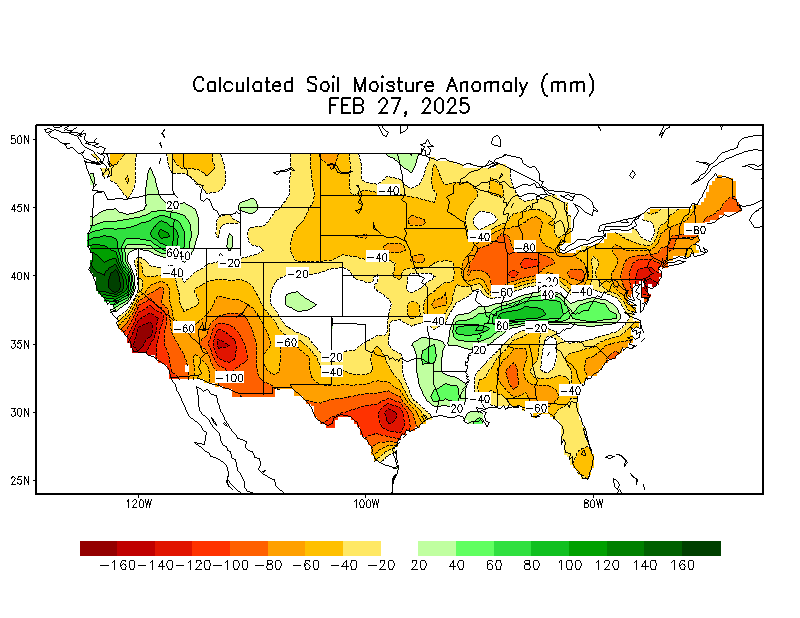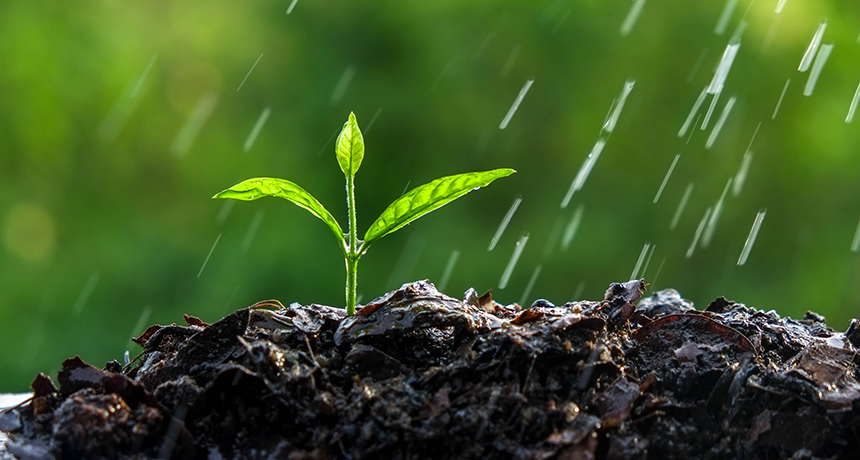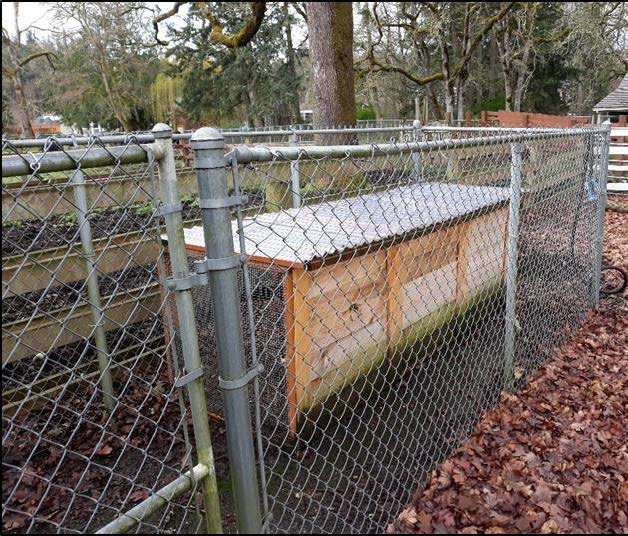It’s that time of year again (unless you live in the Southern Hemisphere). Gardeners everywhere north of the tropics are thinking about what to plant and when to plant it. Everyone has their own method for determining when to put seeds in the ground outdoors. Many of them are tied to particular calendar dates or to holidays like Easter or phases of the moon. A few are even tied to sayings handed down from grandparents. Some of these methods have some usefulness because the calendar is tied to the seasonal cycle, and so planting on a particular date may be climatologically linked to the average date of the last freeze in spring in that location. Others, like planting at a time related to Easter, for example, seem less useful because Easter is not on the same date each year and using something that can occur on any date between March 22 and April 25 to determine your planting date seems a lot riskier, especially in years when Easter is early. In this week’s blog we will look at the importance of monitoring your soil for temperature and moisture conditions to ensure that your seeds and young plants have the best chance of survival.

Soil characteristics
Every soil has a set of intrinsic characteristics that describes its texture, its acidity, and its organic and mineral composition. It can be further described by environmental qualities including water and air content that give more information about what is in the soil on a daily basis. All of these are important in determining the success of a plant that is placed into that soil. Two of these characteristics that are very important for good plant establishment are the soil temperature and moisture present in that soil sample. Think of it like the “soil weather”, if you will. Soil temperature and moisture can vary a lot over just a few days if a front comes through and drops rain over your garden. In other periods it may not change much from one day to the next especially when temperatures are cool and the sky is cloudy which minimizes the heating of direct sunlight. Sandy soils tend to dry out much quicker than soil with a lot of clay content. The temperature and moisture content turn out to be very important for germinating many seeds and allowing the new plants to grow strong.

How does temperature affect germination and plant growth?
Most seeds germinate at when the soil temperature reaches an optimum value for that particular seed type. Our own John Porter discussed how to use this property to start seedlings indoors in spring before the outdoor soil reaches the most favorable temperature a few years ago. But many people make the mistake of using air temperature to decide when to plant rather than soil temperature, because when it feels like spring, gardeners’ thought turn to getting seed into the ground as soon as they can. However, soil temperature often lags the air temperature early in the season and that can lead to seeds germinating very slowly or sometimes just rotting away before they can sprout. Often, it just pays to wait until the soil has warmed up to the most suitable temperature for the seeds you are planting to germinate because your seedlings will be more robust and will grow more quickly.
How to obtain the soil temperature
The best way to get a soil temperature measurement is to do it yourself. There are a number of different inexpensive soil thermometers available to measure the temperature in your own garden plot. You might even find that it varies quite a bit around your property depending on the shading and type of soil you have, just like the local microclimate does. But even if you don’t have a suitable thermometer, there are online sources of soil temperature that can give you a general sense of what the soil temperature is in your area. Even if it is not exactly the same as your own back yard, it is probably close enough for you to judge when it is time to plant.

The National Weather Service does not measure soil temperature and moisture at their local airport stations because it is not useful for transportation, but they do provide some soil temperature and moisture information from satellites and other networks’ measurements because it is useful for hydrology, including watching for floods and droughts. Other agencies also collect this type of information. Many states also have statewide mesonets, including the University of Georgia network that I direct, that measure both soil temperature and moisture as well as weather parameters because they are so important for agriculture. Other countries may also measure this information. Keep in mind that the soil temperatures at those individual stations may not reflect exactly what is going on in your backyard because of differences in soil, sunshine, and exposure, but it will give you a general sense of what the pattern of soil temperatures is.
Once you know what the soil temperature is, wait until you know it is going to reach that temperature reliably, not just plant the first day it reaches that temperature. Generally you need about five days of consistent soil temperatures at the target temperature with no forecast for colder weather returning before it is safe to plant. That will help assure you that the seeds are in the best growing environment they can be.

How is soil moisture important?
According to the American Meteorological Society’s Glossary of Meteorology, soil moisture is “the total amount of water, including the water vapor, in an unsaturated soil.” The amount of moisture in the soil is determined by both weather conditions but also the soil type and vegetation in the area. It can be different at the surface than deeper down in the soil where the root zone of the plants is since it takes time for precipitation to percolate down to the areas where the most roots grow.
Like soil temperature, many state mesonets measure soil moisture in some way, although not all states do. The map in the link shows the distribution of soil moisture measurements from direct measurements across the Lower 48 states. There are also a number of satellite-detected soil moisture images available. For most gardeners, a general sense of how wet or dry the soil is can be enough to plant successfully. If the soil is too dry, the seeds may not germinate successfully but just sit in the ground until conditions improve and then sprout if they are still viable and have not been eaten. If the soil is too wet, the oxygen content of the soil will be too low because the soil water has filled all the pores in the soil structure, suffocating the new roots of any seedlings that develop. The sweet spot is somewhere in between, with enough moisture to swell the seed and nurture the new seedling without clogging the soil pores with too much water.

It’s almost time!
Now that you know how to watch for the perfect conditions (or at least close enough!) for your seeds to grow, I hope you will try your hand at doing your own observations of soil temperature and moisture and see what difference it makes in giving your garden the best start. Happy planting!








